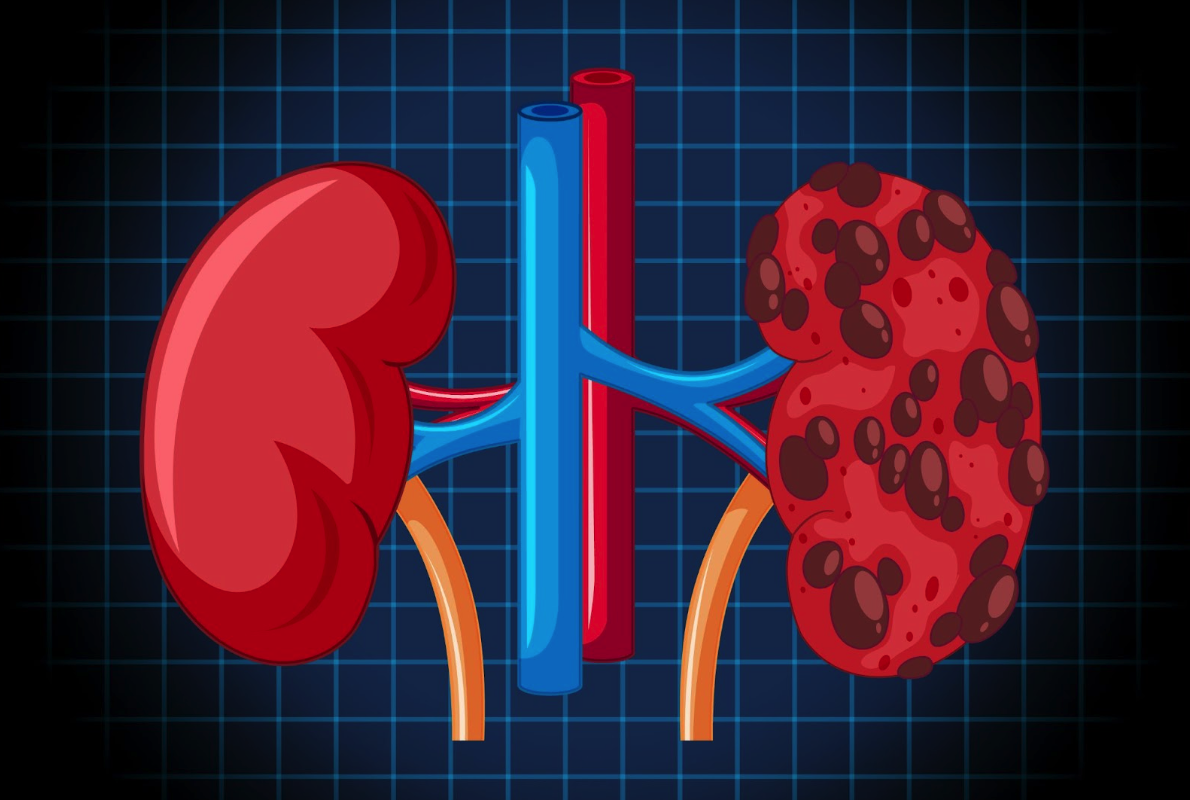
Glomerular disease is a condition that affects the glomeruli, the tiny filtering units inside the kidneys. These filters remove waste and excess fluids from the blood while retaining essential proteins and nutrients. When the glomeruli are damaged, kidney function declines, sometimes leading to serious complications such as diabetic kidney disease or even kidney failure.
Understanding glomerular disease causes, symptoms, prevention, and treatment is essential for maintaining kidney health.
Glomerular disease refers to a group of disorders that damage the glomeruli within the kidneys. This damage affects the kidney’s ability to filter blood properly, leading to protein leakage, waste buildup, and impaired fluid balance.
Glomerular diseases can be primary, meaning the kidneys are directly affected, or secondary, where the disease results from another condition such as diabetes, lupus, or hypertension.
Several factors can contribute to glomerular damage. The most common glomerular disease causes include:
Uncontrolled diabetes is the leading cause of diabetic kidney disease, which gradually damages glomeruli and may result in kidney failure.
Hypertension strains the blood vessels in the kidneys, leading to scarring of glomeruli.
Conditions like lupus and IgA nephropathy attack kidney tissues, causing inflammation and damage.
Post-streptococcal infections or hepatitis can trigger glomerulonephritis.
Inherited disorders such as Alport syndrome affect kidney structure and function.
Long-term use of certain painkillers or exposure to harmful substances can damage the glomeruli.
The symptoms of glomerular disease can vary depending on the severity and underlying cause. Common glomerular disease symptoms include:
If left untreated, these symptoms may progress, leading to chronic kidney disease and ultimately kidney failure.
The right glomerular disease treatment depends on the underlying cause, disease severity, and overall health of the patient. At SPARSH Hospitals, treatment plans are personalised and may include:
For those with diabetic kidney disease, strict control of blood glucose levels is essential to slow disease progression.
A kidney-friendly diet low in sodium, protein, and phosphorus helps reduce stress on the kidneys.
In advanced cases leading to kidney failure, dialysis may be required to filter waste and excess fluid.
For patients with end-stage kidney disease, a transplant is often the most effective long-term solution.
While some causes are unavoidable, many preventive steps can lower the risk of glomerular disease or slow its progression. Key glomerular disease prevention strategies include:
Regular health check-ups – Early detection of protein or blood in urine can prevent complications.
It is important to consult a nephrologist if you notice:
Early diagnosis by the best nephrologist in Bangalore at SPARSH Hospitals ensures timely intervention and helps prevent progression to kidney failure.
As the Best Nephrology Hospital in Bangalore, SPARSH provides world-class kidney care with advanced facilities and a team of highly experienced specialists. Our nephrology department offers:
Our patient-centred approach ensures that every individual receives the best possible care, from early diagnosis to advanced treatment and long-term management.
Glomerular disease is a serious kidney condition that can lead to life-threatening complications if left untreated. Understanding glomerular disease causes, symptoms, treatment, and prevention is crucial for protecting kidney health.
At SPARSH Hospitals, our expert nephrology team combines cutting-edge medical care with compassionate support, making us the Best Nephrology Hospital in Bangalore. With access to the best nephrologists in Bangalore, patients can be assured of comprehensive treatment for conditions ranging from diabetic kidney disease to advanced kidney failure.
If you or a loved one is experiencing symptoms of glomerular disease, seek medical advice promptly. Early intervention can save kidney function and significantly improve quality of life.
The leading glomerular disease causes include diabetes, high blood pressure, autoimmune conditions, infections, genetic disorders, and prolonged exposure to toxins or certain medications.
Typical glomerular disease symptoms include swelling, foamy urine, blood in urine, high blood pressure, fatigue, and reduced urine output.
Glomerular disease treatment may involve medications, dietary changes, blood sugar control, dialysis, or kidney transplantation depending on the severity.
Yes. Key glomerular disease prevention steps include managing diabetes and hypertension, adopting a healthy lifestyle, avoiding smoking and excessive painkiller use, and undergoing regular kidney check-ups.
Categories: Nephrology
Glomerular Disease: Causes, Symptoms, and Treatments is available for appointments. Please fill the below form to book an appointment.
Unlock the door to exceptional healthcare, book an appointment with SPARSH Hospital and let your journey to wellness begin.